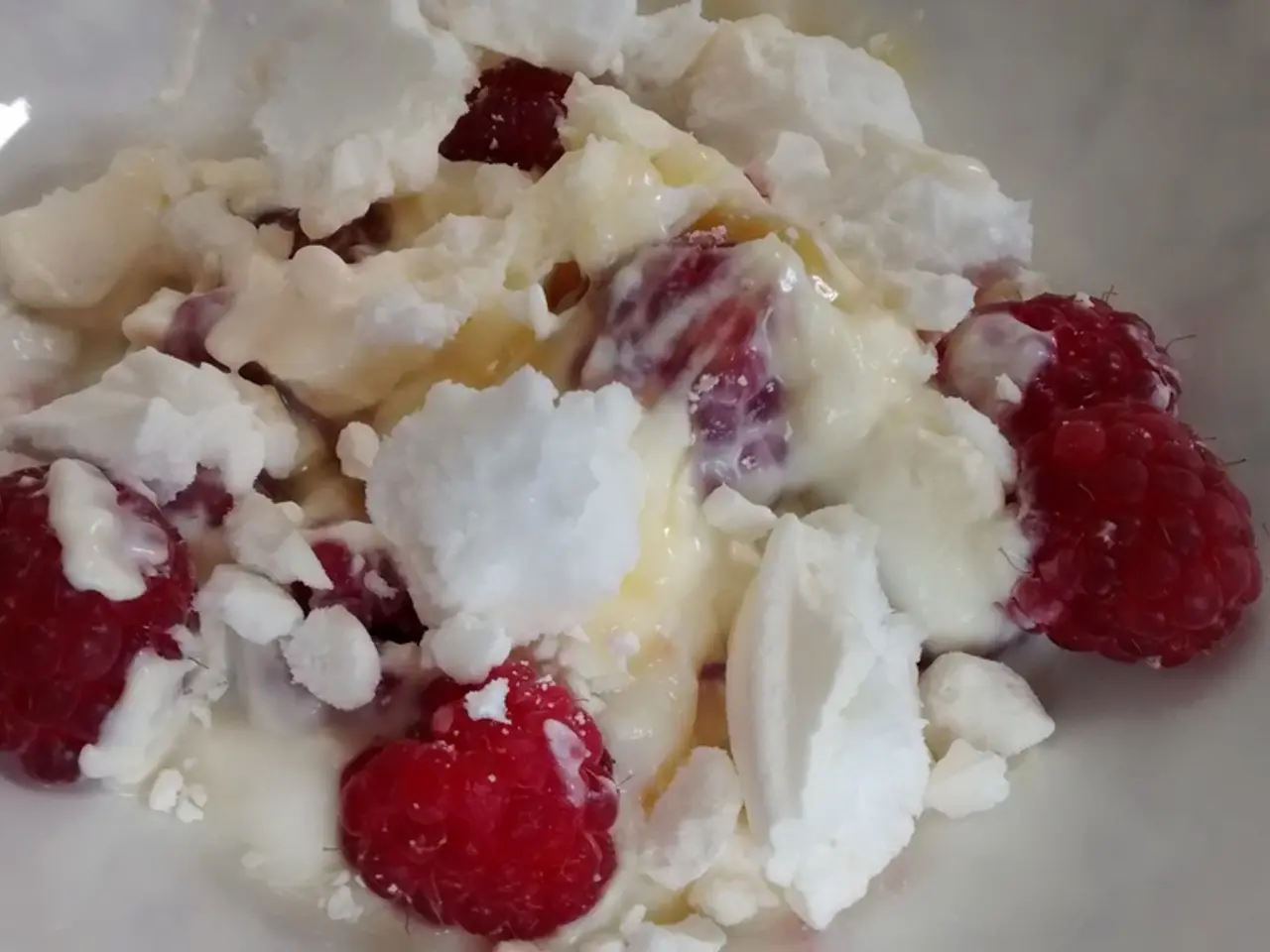Consuming foods suitable for pancreatitis: a list of suggestions
Individuals with pancreatitis need to be mindful of their dietary choices as they play a crucial role in managing the condition and preventing further pancreatic damage. The pancreas is sensitive to certain foods, especially those high in unhealthy fats, sugars, and alcohol, which can increase inflammation and stress on the pancreas.
### Recommended Foods for Pancreatitis
A diet focused on fresh fruits and vegetables, whole grains, lean proteins, and low-fat options is recommended for individuals with pancreatitis. Fruits and vegetables rich in antioxidants and fiber, such as leafy greens, cruciferous vegetables (like cauliflower and broccoli), apples, berries, and citrus fruits, can help reduce pancreatic inflammation and improve digestion. Whole grains like oats, quinoa, and brown rice support better digestion and help maintain stable blood sugar levels. Lean proteins, such as chicken and fish, are better tolerated than fatty meats, providing necessary protein without excessive fat intake that burdens the pancreas. Omega-3 fatty acids, found in fatty fish and flaxseeds, have anti-inflammatory properties that can help reduce pancreatic inflammation.
### Foods to Avoid With Pancreatitis
On the other hand, fried and oily foods, highly processed foods and refined carbohydrates, alcohol, fatty meats and high-fat foods, sugary beverages and desserts should be strictly avoided by those with pancreatitis. These foods can increase the production of chylomicrons and triglycerides, aggravate pancreatitis symptoms, and increase the risk of recurrent attacks.
### Impact of These Dietary Choices on Pancreatitis
A diet that adheres to these recommendations can help reduce inflammation, support pancreatic function, and prevent further damage. It lowers pancreatic workload by improving digestion and preventing excessive pancreatic enzyme secretion. By avoiding fatty, fried, and sugary foods, it helps prevent episodes of acute pancreatitis and supports chronic pancreatitis management. Additionally, maintaining overall pancreatic health is achieved by limiting alcohol and processed foods, reducing damage risk and supporting recovery.
In summary, a diet focused on fresh fruits and vegetables, whole grains, lean proteins, and low-fat options, while strictly avoiding alcohol, fried foods, processed sugars, and high-fat items, is recommended for individuals with pancreatitis. These choices help reduce inflammation, support pancreatic function, and prevent further damage. A healthy diet, combined with medical treatment, can significantly improve the quality of life for those with pancreatitis. It is always advisable to consult a doctor or a registered dietitian to create an eating plan that meets specific needs.
- A tier of fresh fruits and vegetables, such as leafy greens, apples, berries, and citrus fruits, is recommended for individuals with pancreatitis due to their rich antioxidant and fiber content.
- Whole grains like oats, quinoa, and brown rice are suggested for individuals with pancreatitis, as they support better digestion and help maintain stable blood sugar levels.
- Lean proteins, such as chicken and fish, are better tolerated by individuals with pancreatitis, providing necessary protein without the excessive fat intake that burdens the pancreas.
- Omega-3 fatty acids, found in fatty fish and flaxseeds, have anti-inflammatory properties and can help reduce pancreatic inflammation for individuals with pancreatitis.
- Fried and oily foods, highly processed foods and refined carbohydrates, alcohol, fatty meats, and high-fat foods should be strictly avoided by individuals with pancreatitis, as they can increase the production of chylomicrons and triglycerides and aggravate pancreatitis symptoms.
- Sugary beverages and desserts should also be excluded from the diet of individuals with pancreatitis, as they can increase the risk of recurrent attacks.
- By adhering to these dietary recommendations, individuals with pancreatitis can reduce inflammation, support pancreatic function, and prevent further damage.
- A predictive effect of a healthy diet, combined with medical treatment, on the quality of life for those with pancreatitis can be significant, as it helps manage chronic pancreatitis and prevent episodes of acute pancreatitis.
- Considering overall pancreatic health, alcohol and processed foods should be limited by individuals with pancreatitis, as they can increase damage risk and hinder recovery.
- It's advisable for individuals with pancreatitis to consult a doctor or a registered dietitian to establish a personalized eating plan that addresses their specific dietary needs.




